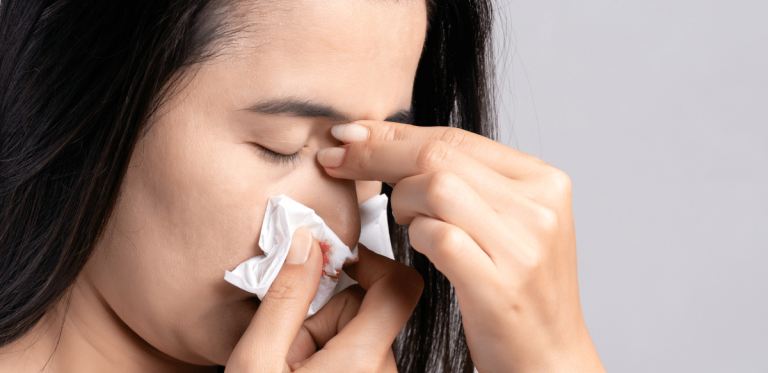Nosebleeds are a common symptom in patients with bleeding disorders. If serious, they may cause severe anemia. However, most stop on their own and can be treated safely at home. Nosebleeds occur more often in the winter and when the air is dry.
What to Do:
- Sit up with you head tilted slightly forward. Do not lean back- this may cause gagging, coughing, or vomiting.
- Pinch the soft part of the nose (just below the bony part) and apply pressure for at least five minutes.
- Release the pressure to see if the bleeding has stopped. Gently blow out any soft clots. If bleeding continues, reapply pressure for another five minutes. Continue these steps until the bleeding stops.
- If the bleeding has not stopped, additional treatment may be indicated.
- Seek medical care if you: tend to bruise easily or have heavy bleeding from minor wounds, or recently started a new medication.
- Seek emergency medical care if bleeding: is heavy, is accompanied by dizziness or paleness of the skin, continues after two or three attempts of applying pressure, or is the result of a blow to the head or a fall.
Prevention:
- To help prevent dryness in the nose, use saline (salt water) nasal spray or drops (or put petroleum jelly on the inside edges of the nostrils) and use a humidifier.
- Avoid smoke exposure.
- Avoid nose picking or forceful blowing of the nose.
- Avoid any known allergens.
- Keep fingernails short to avoid accidentally scratching inside of the nose.
If you or someone in your family experiences frequent or heavy nosebleeds, consult with your physician as this may be a sign of a bleeding disorder. If you have any questions or concerns, please reach out BCDI at 309-692-5337.

